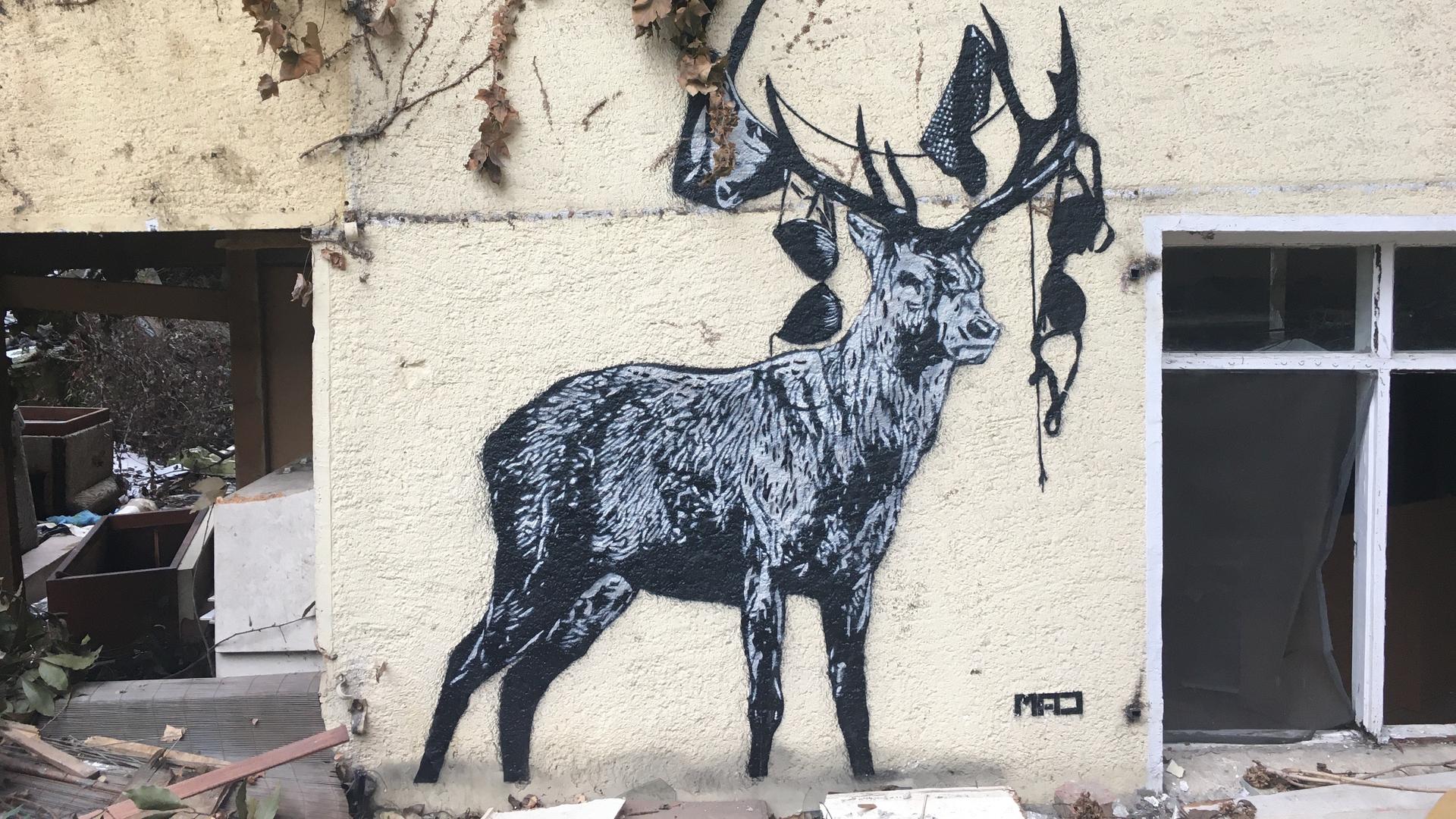Inside an abandoned apartment building in Istanbul, Turkish artists have built an overnight museum of urban art.
Bright, colorful monsters with razor-sharp teeth guard the walls of one apartment, empty save for piles of broken glass and debris. In another room, a tree sculpted from a pile of discarded clothing seems to gaze wistfully out of the hole that was once a bedroom window. Nearby, pairs of shoes sit outside an apartment door, as if the tenants were having a party.
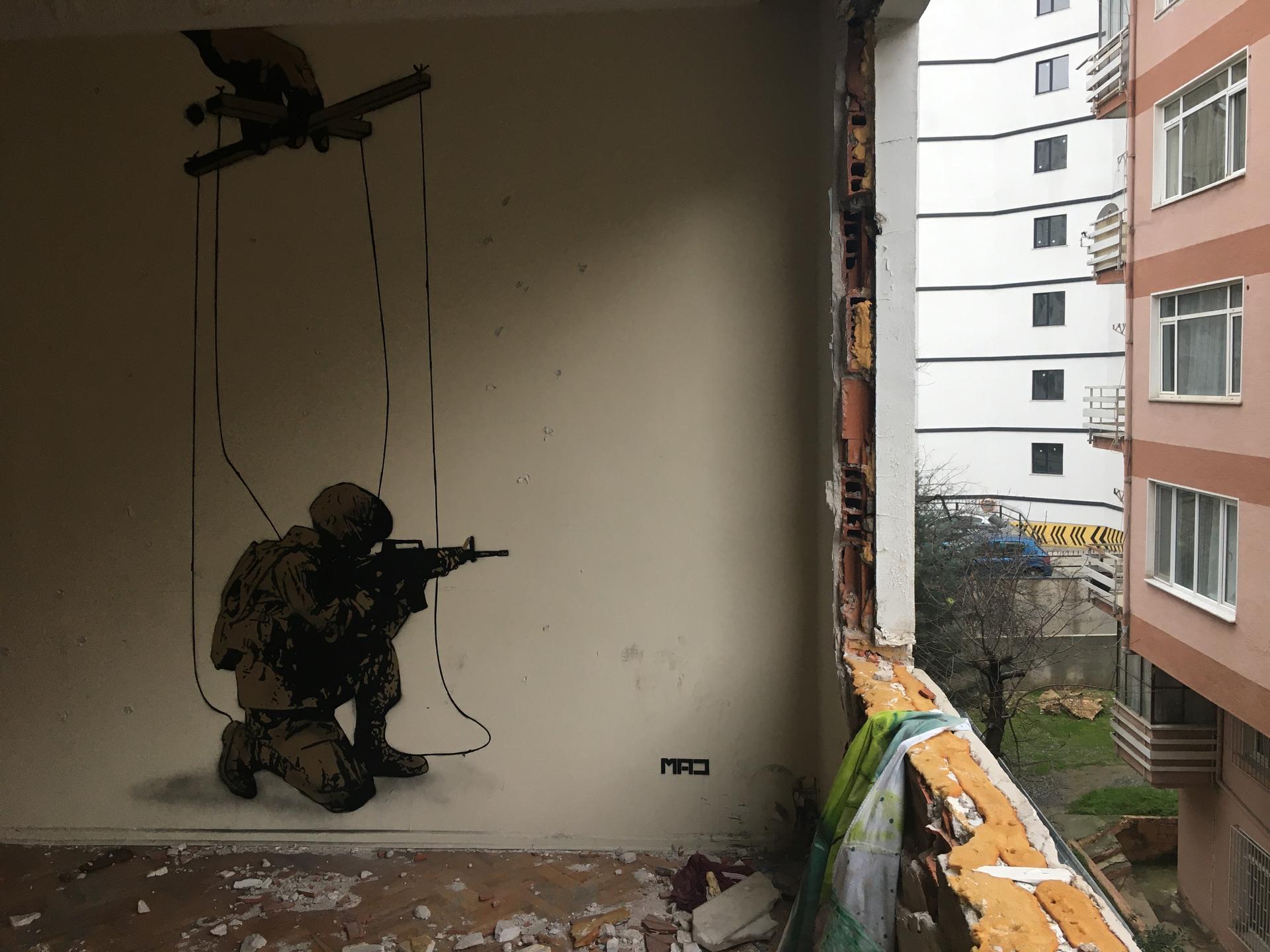
This is “Mikrotopya,” a collection of installations, graffiti art and sculptures of found items created by 16 artists in an empty, four-story apartment building slated for demolition as part of an extensive urban renewal project. The art can be found throughout more than a dozen of the building’s apartments.
Related: Abortion increasingly hard to access in Turkey
“Mikrotopya” — or “Microtopia,” in its English spelling — comes from a concept pioneered by French art critic Nicolas Bourriaud. The idea centers around the concept that if the world around you isn’t perfect, you can create a tiny world of your own with what you have, the show’s curator and artist Begum Tekay explained.
“Instead of imagining what we can’t do, what we need to do is focus on what is actually possible.”
“Instead of imagining what we can’t do, what we need to do is focus on what is actually possible,” Tekay said.
And if what you have around you is an abandoned building that might not be here tomorrow, so be it.
Related: In Turkey, a conservative push to remove domestic violence protections is met with an uproar
The apartment building’s loss to urban renewal is not unusual in Istanbul’s bustling Kadikoy district, where the threat of an earthquake is an ever-present danger in homes that were constructed before the enforcement of modern building codes. The new apartments will likely be sleek and taller, more modern, but they might not match the neighborhood’s original seaside feel, full of wide balconies and gardens with orange trees.
When the residents moved out of their apartments to wait out the construction period, Tekay, who runs a ceramics studio next door, arranged with the building’s contractors to allow a temporary art exhibit there, before the scheduled demolition. Most of the installations were created within five days, and “Mikrotopya” was opened to the public on Nov. 1, with an uncertain end-date. The building’s demolition is imminent.
“The people who used to live here also came to the exhibition. Some of them got really sad, some were really happy. Their experience is important to me.”
“The people who used to live here also came to the exhibition,” Tekay said. “Some of them got really sad, some were really happy. Their experience is important to me.”
Without windows or heating, the cold of a gray, January afternoon seeps in quickly through the hard concrete. Each piece feels tailor-made to the apartment where it is installed, either as a meditation or a stark contrast to the lives of the people who once lived there. In one room, a vintage parquet floor with crown molding now frames the image of a soldier crouching with a sniper’s gun, tied to the strings of a puppet master.
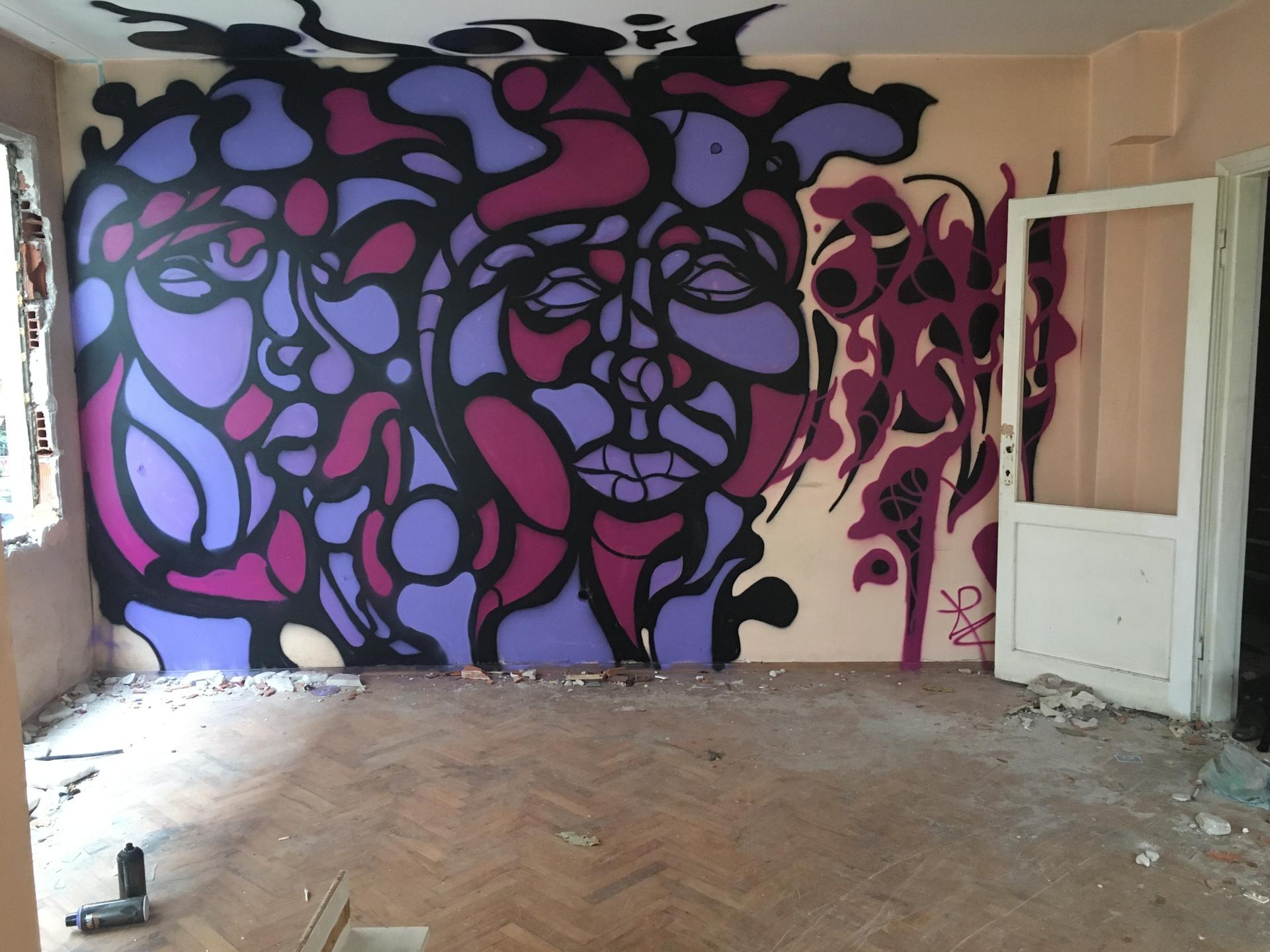
On the top floor, a horned, wooden sculpture sits perched over the side of a crumbling balcony, holding a windchime of spoons over the street below. Burak Cizer created it with materials left behind by the building’s tenants, in their kitchens, living rooms and hallways.
Related: Expulsions, pushbacks and extraditions: Turkey’s war on dissent extends to Europe
“I wanted it to be like a totem. The protector sculpture for this building,” Cizer said.
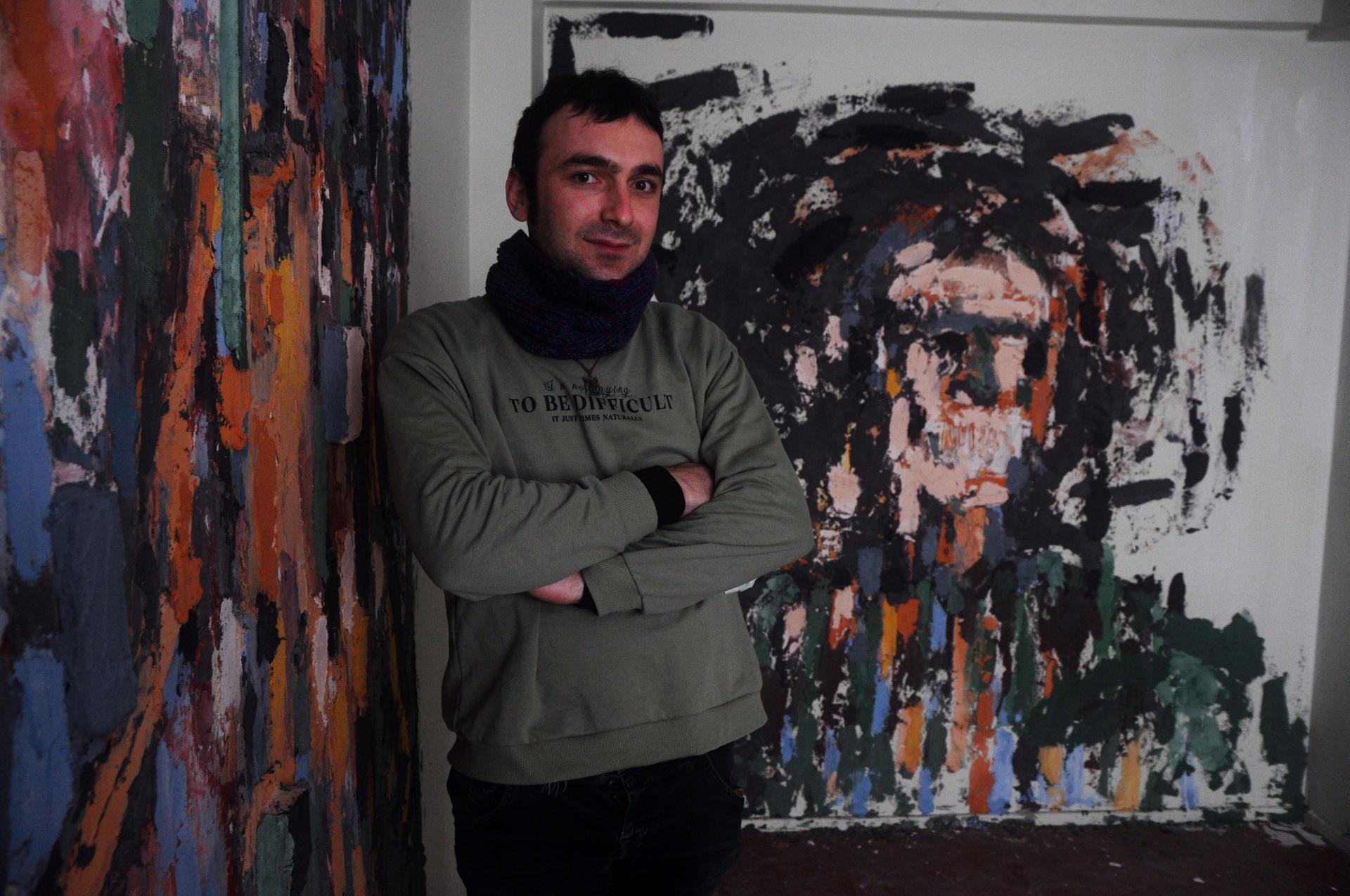
Another arresting installation by Batikan Bostanci depicts obscured, almost skeletal images of people painted in stripes and pigments over sections of concrete relief. He calls them “Powerless Faces.”
“When I first came to this place, I felt like nothing here belongs to the present,” Bostanci said. “Nothing has an owner anymore.”
Related: Istanbul’s Asitane restaurant is a ‘gateway’ to the city’s culinary past
Bostanci’s installation appears as a mediation on spaces frozen in time, where right and wrong no longer exist and one’s fate is out of their control.
“Everything here belongs to this building and will be gone when the building is demolished,” Bostanci said. “[The residents] are really kind and understanding people, so I also want this building to be demolished so that they can have their own homes, eventually.”
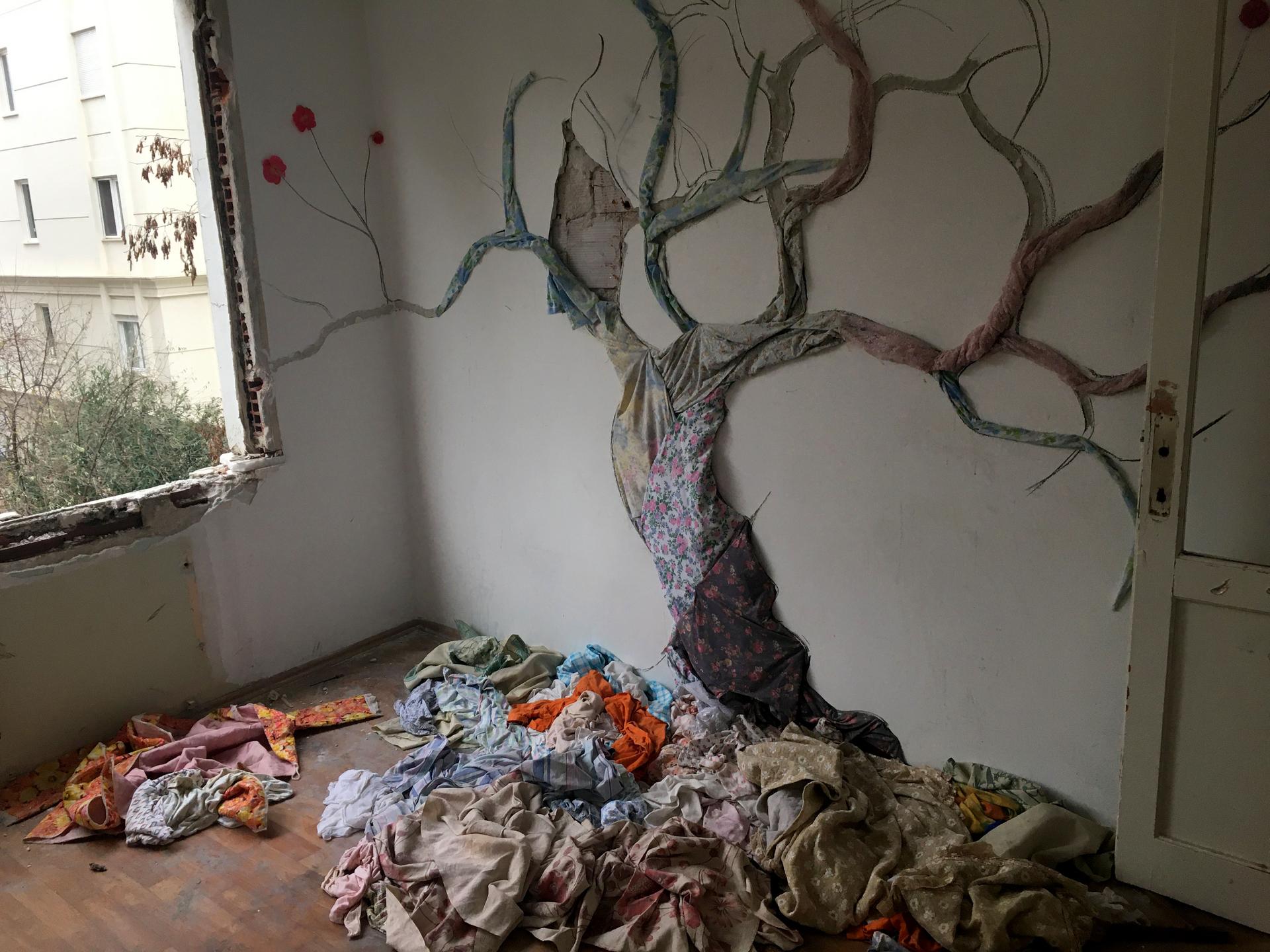
Our coverage reaches millions each week, but only a small fraction of listeners contribute to sustain our program. We still need 224 more people to donate $100 or $10/monthly to unlock our $67,000 match. Will you help us get there today?
